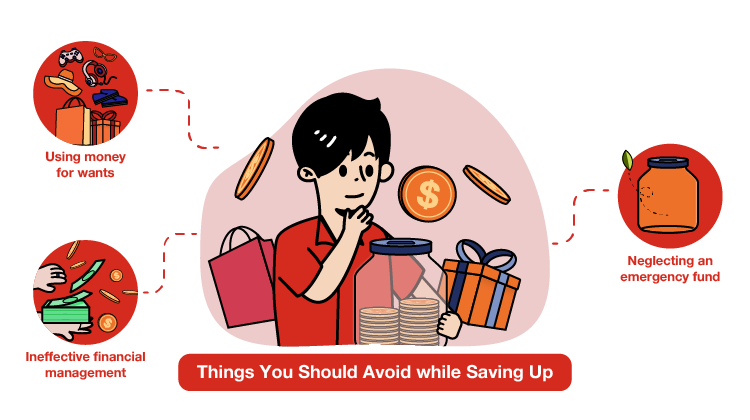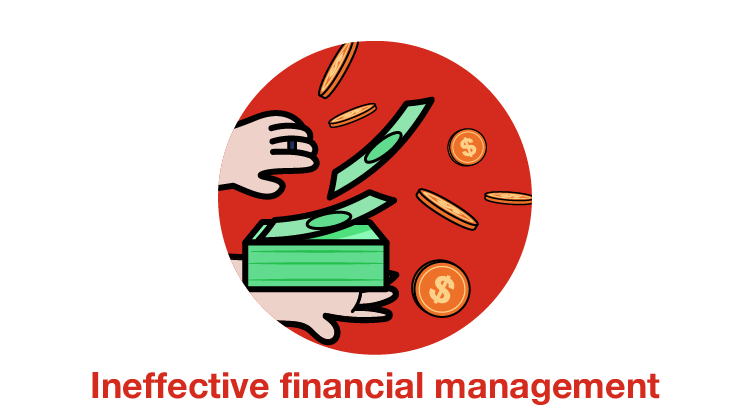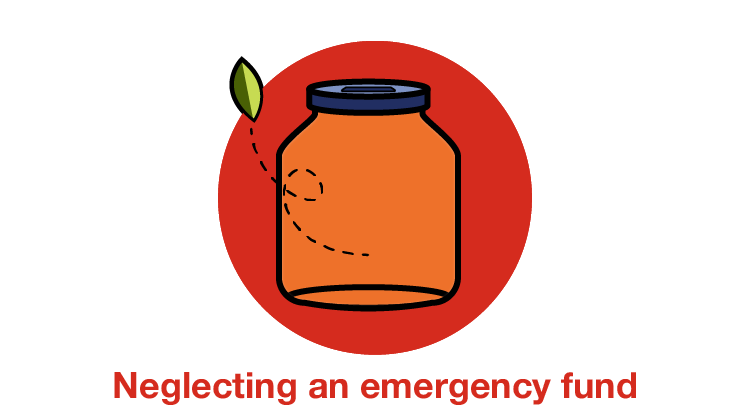As one of Asia’s visionaries in the takaful industry, we care for your needs and safeguard your future.



Are you looking to travel? Or perhaps buy those long-awaited items? Or maybe just prepare for emergencies? Well, saving is the solution! Saving is one of the smart steps to manage your finances and can help you in the future. However, there are certain aspects you need to be mindful of when saving up your funds. Let's take a look at what you should avoid when saving in this blog.

It is not wrong if you want to spend for yourself but if you have made a commitment to save up, you should avoid yourself from using the money for your wants. “Wants” refers to the desire towards a certain item or services, different from your “needs”, which brings meaning to important basic needs such as clothes, foods and a roof over your head. It is important for you to prioritise you and your family’s needs so that there are no overspending situations happening from your wants. Better yet, if you are longing for a certain item, you are recommended to make a separate saving for your needs or wants so that it will not mix up between the two.

One of the saving tips or steps you can take is by having a wise financial management plan. Before saving up, decide on the purpose of saving up. Is it for your vacation plans? Or is it a saving plan for your children’s education investment? Deciding on a purpose of saving up will help you create a budget for your plan so that your financial management is effective. Manage your finances wisely by listing down any withdrawals or any pay-ins so that your finance is on the right track.
With 366 days, it is undeniable that you will find it hard to remain consistent in achieving your resolutions. Building up consistency to achieve your new year’s resolution needs patience, discipline and a good strategy. One of the ways to be consistent is by having realistic goals so that you won’t be too pressured to achieve them, making a daily action schedule to build up a good routine for you, and making a reminder to help you remember your goals and daily achievement. The process of achieving your goals is a long journey, and consistency is the key. By making gradual changes and practising a suitable strategy, you may increase the likelihood of success in achieving your new year’s resolutions.

An emergency fund is one of the most important purposes of saving up. We cannot expect the emergencies that will fall upon us in the future, hence, it is better if you prepare a specific savings just for emergencies only. Emergencies can come in all sorts of forms such as car maintenance costs, medical emergencies as well as house fixes. An emergency fund can elevate your financial burdens, and can help avoid you from making debts to cover the extra expenses due to the emergency. When you ignore your emergency fund savings, you are risked to spend extra from your budget, and may take in debts from other parties, unknowingly adding more burden to your finances. You should be disciplined and save according to your financial status to avoid any bad situations happening.
Saving up needs high discipline and is an important aspect in financial management. Saving up is the first step and the most basic in moving towards financial freedom that is stable. Save wisely and manage your finances as best as you can. There are an abundance of saving steps that you can explore, including taking a wealth accumulation & protection plan. By taking thoughtful steps to understand the right way to save and prioritising your savings goals, you can accumulate money diligently and systematically.
As one of Asia’s visionaries in the takaful industry, we care for your needs and safeguard your future.
Great Eastern Takaful is a name you can trust for all your takaful solutions.
Great Eastern Takaful’s visionary leaders have steered the company from strength to strength.